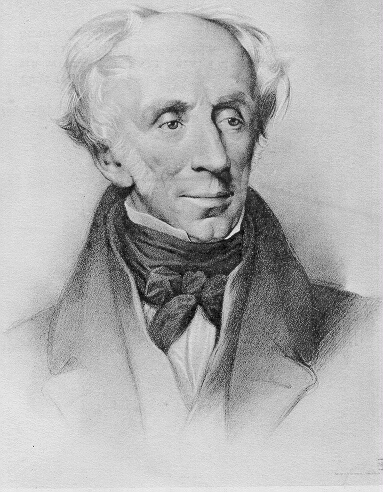William Wordsworth (1770-1850) was a British poet, credited with ushering in the English Romantic Movement with the publication of Lyrical Ballads(1798) in collaboration with Samuel Taylor Coleridge.
Wordsworth was a defining member of the English Romantic Movement.
Like other Romantics, Wordsworth’s personality and poetry were deeply influenced by his love of nature, especially by the sights and scenes of the Lake Country, in which he spent most of his mature life.
A profoundly earnest and sincere thinker, he displayed a high seriousness tempered with tenderness and a love of simplicity.
THE DAFFODILS
I wandered lonely as a cloud
That floats on high o'er vales and hills,
When all at once I saw a crowd,
A host, of golden daffodils;
Beside the lake, beneath the trees,
Fluttering and dancing in the breeze.
Continuous as the stars that shine
And twinkle on the milky way,
They stretched in never-ending line
Along the margin of a bay:
Ten thousand saw I at a glance,
Tossing their heads in sprightly dance.
The waves beside them danced; but they
Out-did the sparkling waves in glee:
A poet could not but be gay,
In such a jocund company:
I gazed - and gazed - but little thought
What wealth the show to me had brought:
For oft, when on my couch I lie
In vacant or in pensive mood,
They flash upon that inward eye
Which is the bliss of solitude;
And then my heart with pleasure fills,
And dances with the daffodils.
SONNET 14
How clear, how keen, how marvellously bright
The effluence from yon distant mountain's head,
Which, strewn with snow smooth as the sky can shed,
Shines like another sun — on mortal sight
Uprisen, as if to check approaching Night,
And all her twinkling stars. Who now would tread,
If so he might, yon mountain's glittering head —
Terrestrial, but a surface, by the flight
Of sad mortality's earth-sullying wing,
Unswept, unstained? Nor shall the aerial Powers
Dissolve that beauty, destined to endure,
White, radiant, exquisitely pure,
Through all vicissitudes, till genial Spring
Has filled the laughing vales with welcome flowers.
A CHARACTER
I marvel how Nature could ever find space
For so many strange contrasts in one human face:
There's thought and no thought, and there's paleness and bloom
And bustle and sluggishness, pleasure and gloom.
There's weakness, and strength both redundant and vain;
Such strength as, if ever affliction and pain
Could pierce through a temper that's soft to disease,
Would be rational peace--a philosopher's ease.
There's indifference, alike when he fails or succeeds,
And attention full ten times as much as there needs;
Pride where there's no envy, there's so much of joy;
And mildness, and spirit both forward and coy.
There's freedom, and sometimes a diffident stare
Of shame scarcely seeming to know that she's there,
There's virtue, the title it surely may claim,
Yet wants heaven knows what to be worthy the name.
This picture from nature may seem to depart,
Yet the Man would at once run away with your heart;
And I for five centuries right gladly would be
Such an odd such a kind happy creature as he.


